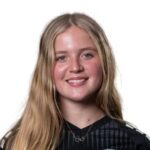Raising an MVP: How does your kid measure up?
 How does your kid measure up? That’s a pretty dangerous question, but we keep trying to find an answer.
How does your kid measure up? That’s a pretty dangerous question, but we keep trying to find an answer.
Not just height and weight for the annual physical. But how are their grades and scores, tests and evaluations? What are their rankings, percentiles, competitive finishes, selections, special mentions? We just keep measuring.
The reason for this is, of course, to be sure they are progressing and achieving. How will we know whether they have learned the material, whether they are ready for the next level, if we don’t test them to be sure? The result: our kids are the most assessed generation ever.
Sport is an interesting arena for this, though. Assessment of teams is easy; we keep score. But what about the individual athletes? How do we know how good they are? Isn’t there just a battery of tests that will tell us, say, if they’re on super star trajectory, or not? A quantifiable measure like the standardized test? Let’s just find the best kids and put ‘em on the national team.
That might work if all we cared about was identifying the few dozen “best” kids, though I’m not so sure. How about when we’re parenting kids or we are kids or we’re coaching kids who will never make the national team, then what? Because kids, parents and coaches all look at assessment a bit differently.
- The kid wants to know: Am I good enough to make the team?
- The parent wants to know: What does my kid have to be able to do to make the team?
- The coach wants to know: Does this kid have what it takes to make this a winning team?
These are all fair questions but with some pretty different objectives. Can we standardize the process so we know what we’re looking for?
Sport scientists do their part by measuring the physical dimension of the game, assessing things like sprint speed, endurance, strength, coordination, balance, and agility, etc.
Coaches collect game stats like touches, shots, saves, time of possession, accuracy of passes, etc. Then we compare our lists, looking for physical characteristics that result in superior performance. This is the American way: measure and compare, measure and compare.
Unfortunately, it’s not that simple. The most physically advanced don’t always perform well, and they certainly don’t always win.
And there’s the rub: we are trying to form a winning team by measuring individual indices. If soccer were an individual sport dictated purely math and science, maybe these measures would accurately predict our winner. Then we wouldn’t even need to play.
But it doesn’t work that way. There’s more to the equation. There’s decision-making, focus, mental toughness, attitude, that express themselves in team chemistry, personality and creativity. That’s where I have seen the excellent coach make all the difference.
Thanks to the coaches on the NSCAA LinkedIn forum,* we’ve been batting around the question: are there ways of assessing players’ technical, tactical, and mental toughness as foundations for performance potential.
Coaches want to know what they’ve got to work with. The coaches have commented that individual assessments and game stats – our usual measures – may miss things that are extremely important to team performance such as work rate off the ball, support, and leadership, which are evidence of mental maturity in the game.

I’m not sure how you measure these. It may be even harder to train these. But recognizing them may be the one thing the best coaches do well, and the poor coaches lose sight of. That’s easy to do, because they’re fairly invisible. They’re the things an athlete does that makes all his or her teammates better -whatever that is, whatever that takes.
In a world of concrete assessment and specialization that’s pretty counter-cultural. But it may be just what every coach needs AND every parent wants. Wouldn’t it be a great day if parents and coaches could all be on the same page?!
So, how do you inspire the “unmeasurables”? There’s probably not just one right way. I guess that’s what makes coaching, parenting and playing, an art as well as a science. The best coaches find a way to inspire personal best performance for the good of the team.
What a great example of this we saw in NCAA Women’s College Cup play this weekend. I especially loved seeing UVa coach Steve Swanson’s Cavaliers with their “ALL IN” stamped on their forearms. Now there’s a coach who has figured out how to blend a team of talented young women in a healthy way. They’re ALL IN it for the team.
So, does your kid measure up? You may need to ask his or her teammates. They’ll tell you which kid will pull out all the stops to ‘do it for the team,’ including laying down that perfectly weighted pass so someone else can finish it for the winning goal. Those are the athletes we want to recruit, the ones we want to raise and the ones we want to be. Isn’t it nice that we can all agree on something?
So, how do we develop that kid?
SOCCERWIRE MARKETPLACE
- Start the Season Strong at Loudoun Premier Cup!
- 50th Annual Rael Vodicka Memorial Tournament
- Soccer Marketing Internships at The St. James FC
- Job Opening: The St. James FC Goalkeeper Academy Coach
- Full-Time Director of Goalkeeping for The St. James FC
- visitRaleigh.com Showcase Series 2025, hosted by NCFC Youth
- Join Official Elite Summer Soccer Camps with Europe’s Top Pro Clubs!
- OFFICIAL BAYERN MUNICH SUMMER CAMPS U.S.
- OFFICIAL FC BARCELONA CAMPS U.S.
- The Cup San Diego - Hosted by Legends FC












